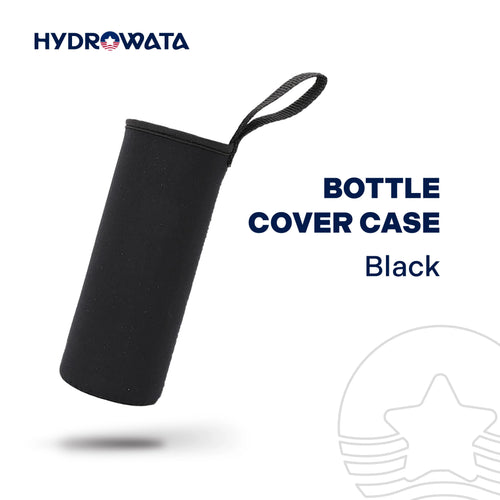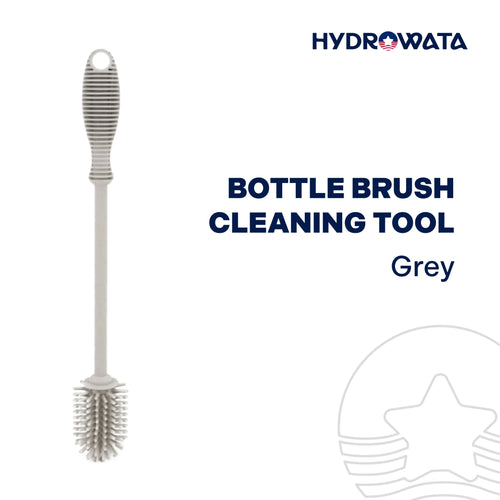Water is an essential part of our daily lives, but not all water is created equal. Distilled water is one of the purest forms of water, free from minerals, bacteria, and other contaminants. It has various uses, from medical applications and laboratory experiments to household and industrial needs. Some people even prefer drinking distilled water due to its high purity. However, there are debates about whether distilled water is the best option for hydration since it lacks essential minerals.
In this article, we will explore everything you need to know about distilled water, including how it is made, its uses, benefits, potential drawbacks, and even how you can make it at home. Join HydroWata in exploring the fascinating world of distilled water and discover how it compares to other purified water types, such as hydrogen water.
What is Distilled Water?

Distilled water is a type of purified water that has been stripped of all impurities through a process called distillation. This involves boiling water until it turns into steam and then condensing the steam back into liquid form, leaving behind contaminants, minerals, and other unwanted substances.
Because of this process, distilled water is:
- Free from bacteria, viruses, and microorganisms.
- Free from heavy metals such as lead, arsenic, and mercury.
- Free from dissolved salts and minerals.
- Free from chemicals, including chlorine and fluoride.
Distilled water is widely used in laboratories, medical facilities, and industrial settings where high purity is required. It is also used in steam irons, humidifiers, and car batteries to prevent mineral buildup. While some people drink distilled water, others argue that the absence of minerals makes it less beneficial than other types of purified water.
So, how exactly is distilled water made? Let’s take a closer look at the process.
How Distilled Water is Made

Distilled water is created through a simple but effective purification process known as distillation. This method has been used for centuries to remove impurities from water. Here’s how the process works:
Step 1: Boiling the Water
Regular tap water is heated to its boiling point, causing it to evaporate and turn into steam. Since water has a lower boiling point than most contaminants, heavy metals, salts, and impurities are left behind.
Step 2: Capturing the Steam
As the water evaporates, it rises into a cooling chamber or a collection system where the steam is trapped and separated from the remaining impurities.
Step 3: Condensation
The steam is then cooled down and converted back into liquid form. This newly formed water is now free from contaminants and minerals.
Step 4: Storage
The distilled water is collected in a clean, sterile container, ready for use.
This method mimics the natural water cycle, where water evaporates from oceans and lakes, forms clouds, and returns as rainwater. However, unlike natural rainwater, distilled water is not exposed to airborne pollutants.
Uses of Distilled Water
Distilled water has many applications due to its high purity. It is used in various industries, medical settings, and even household appliances. Here are some of the most common uses:
Medical & Laboratory Applications

- Used for sterilization of medical instruments and laboratory equipment.
- Essential for preparing medications and chemical solutions.
- Used in CPAP (Continuous Positive Airway Pressure) machines to prevent mineral buildup.
Automotive & Industrial Uses

- Used in car batteries to prevent corrosion and extend battery life.
- Added to radiators to prevent mineral buildup and engine damage.
- Required for industrial cooling systems and steam production.
Household & Appliance Uses

- Used in humidifiers to prevent the formation of white dust from mineral deposits.
- Ideal for steam irons, as it prevents clogging caused by hard water minerals.
- Commonly used in aquariums to maintain balanced water conditions.
Personal Care & Skincare

- Some people use distilled water for skincare routines to avoid impurities found in tap water.
- Used in hair treatments to remove chemical residues.
- Added to cosmetics and beauty products to ensure purity.
Drinking & Cooking

- Some people prefer drinking distilled water to avoid contaminants in tap water.
- Used in baby formula preparation to ensure safe hydration.
- Often used in food processing industries to maintain purity.
While distilled water has many benefits, is it really the best option for drinking? Let’s explore its advantages and disadvantages.
Benefits of Distilled Water

Drinking and using distilled water has several advantages. Here’s why many people prefer it:
Free from Contaminants
Distillation removes nearly all impurities from water, making it free from harmful substances such as:
- Heavy metals (lead, mercury, arsenic).
- Bacteria, viruses, and parasites.
- Pesticides and industrial chemicals.
Prevents Mineral Buildup in Appliances
Using distilled water in steam irons, humidifiers, and medical devices prevents mineral deposits, ensuring longer lifespan and better performance.
Ideal for People with Health Conditions
- Those with weakened immune systems may benefit from distilled water as it eliminates bacteria and viruses.
- People with kidney disease or those on a low-mineral diet may prefer distilled water to control their intake of certain minerals.
Safe for Infant Formula Preparation
Distilled water is recommended for mixing baby formula, as it does not contain contaminants that may harm an infant’s delicate system.
While distilled water has many benefits, it also has some drawbacks.
Downsides of Distilled Water
Lacks Essential Minerals
Since distillation removes everything from the water, it also eliminates beneficial minerals such as calcium, magnesium, and potassium, which are essential for bone and heart health.
Flat Taste
Many people find distilled water to have a bland or flat taste due to the absence of natural minerals.
Not Ideal for Long-Term Hydration
Drinking distilled water exclusively may lead to a depletion of essential electrolytes unless minerals are added back through diet or supplements.
How to Make Distilled Water at Home

Method 1: Stovetop Distillation
- Fill a large pot with water and place a smaller bowl inside.
- Cover the pot with an inverted lid, allowing the steam to collect and drip into the bowl.
- Heat the water until it boils, then let the steam condense back into the bowl.
Method 2: Using a Home Distillation Unit
- Purchase a home water distillation system.
- Follow the manufacturer’s instructions to produce distilled water safely.
Distilled Water vs. Hydrogen Water – Which is Better?

Distilled Water
- Free from contaminants and minerals.
- Best for medical, industrial, and appliance use.
- May lack minerals necessary for health.
Hydrogen Water
- Contains dissolved hydrogen molecules, which may have antioxidant benefits.
- Helps reduce inflammation and oxidative stress.
- Retains essential minerals for better hydration.
If purity is your main concern, distilled water is ideal. If health benefits are a priority, hydrogen water might be a better choice.
Conclusion
Distilled water is one of the purest forms of water, making it useful for many applications. While it removes contaminants, it also eliminates essential minerals, which may not make it the best option for drinking. Whether you use distilled water for medical needs, appliances, or hydration, understanding its pros and cons will help you make an informed decision. Join HydroWata in exploring the best hydration solution for your needs!
FAQs
1. Is distilled water safe to drink every day?
Yes, distilled water is safe to drink, but it lacks essential minerals like calcium and magnesium. If consumed regularly, ensure you're getting these minerals from your diet.
2. Does distilled water expire?
No, distilled water does not expire if stored properly in a sealed container. However, exposure to air can introduce contaminants over time.
3. Can I use distilled water for cooking?
Yes, distilled water is great for cooking, especially for soups, pasta, and beverages, as it has no impurities that could alter the taste of food.
4. Is distilled water the same as purified water?
No, purified water includes various filtration methods (like reverse osmosis), while distilled water is made specifically through boiling and condensation, removing all impurities.
5. Can I use distilled water in my humidifier or CPAP machine?
Yes! Distilled water is the best choice for humidifiers and CPAP machines because it prevents mineral buildup and extends the life of the device.





